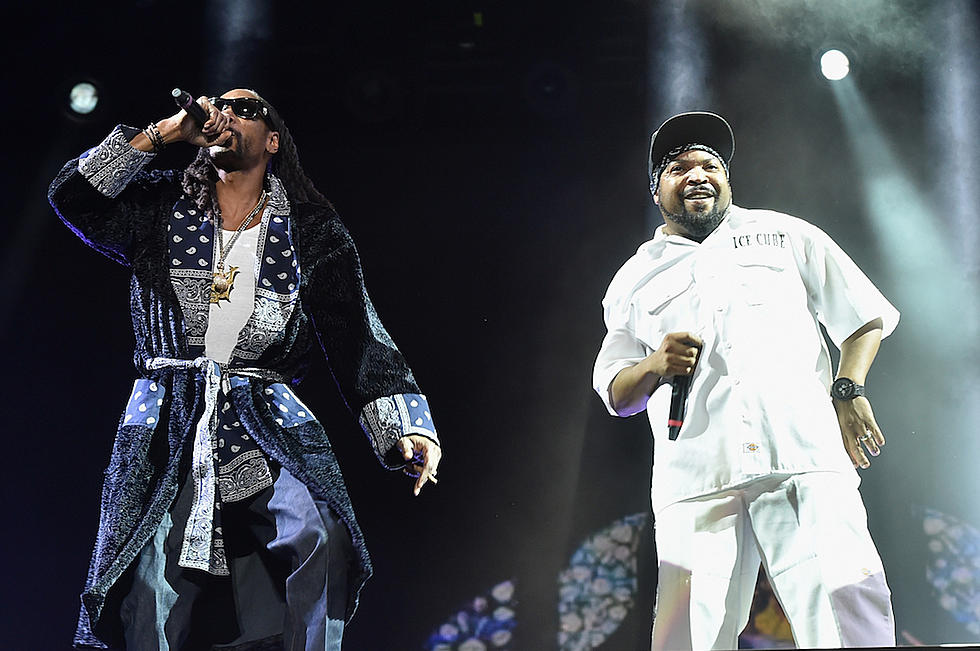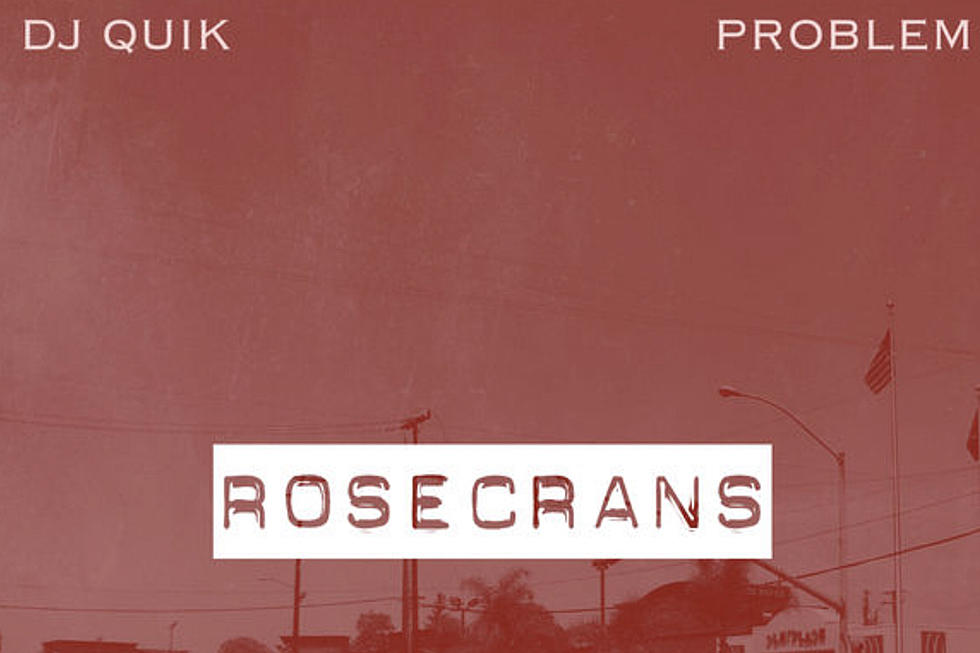
DJ Quik Is Still One of the Best To Ever Do it; and Still Underappreciated
Last January marked 25 years since rapper/producer DJ Quik released his classic debut, Quik Is the Name. A landmark album for West Coast hip-hop, the project would go on to influence both coasts, anchored by funky production, creative samples and Quik’s penchant for weaving street tales from everyday life.
A landmark album, Quik Is the Name was a platinum seller and remains Quik’s best selling record to date. Quik rode in at the tail end of NWA’s gangsta rap reign (the group's final album NIGGAZ4LIFE would drop just four months later) and just one year before Dr. Dre’s legendary solo debut, The Chronic. His arrival signaled a new direction and sound, particularly for West Coast rap. Drawing from his jazz, soul, boom bap and funk influences, Quik is the Name is a hodgepodge of sounds that remains uniquely cohesive.
The album featured a few of his signature songs, including the track that would serve to solidify Compton's standing after NWA and long before Kendrick Lamar, “Born and Raised in Compton.” While NWA brought the city's street life to light, Quik took it a step further, showing its other side as home base for a tenacious creative. Compton wasn't only about the ugly results of crime, poverty and an oppressed, exploited community— it was also the place populated with everyday dudes who wanted to "make it." Really, the song was more than on ode to his city, it was a declaration for Quik himself.
"Way back in the day, somebody musta wanted me to quit/because they broke in my house and cold stole my sh-t/They musta thought that I was gonna play the punk role, just because my equipment got stole/but I ain't goin' out like a sucka-ass clown/they found, they couldn't keep a dope n---- down."
However, the album's defining moment came courtesy of his party anthem, “Tonite” where he raps about getting ready for a party and being so drunk by the end of the night, he promises "the Man Upstairs" he'll never drink again, only to renege on it by the time the song finishes. Quik Is the Name was a unique and fresh in its approach, even when it tapped into the playful vibe set by Eazy-E’s solo records. It was a celebration of an almost careless youth, defined by coming of age wisdom and hard lessons learned.
But really, it's the production that makes Quik Is the Name and Quik's entire career so significant. A master producer who really still doesn’t receive enough respect for his talent, Quik is the Name showcased Quik’s greatest strengths—an undeniable ear for samples which stems from his vast music knowledge. Betty Wright, The Emotions and Herbie Hancock are just a few of the artists the Compton beatsmith sampled.
His love for music has been duly noted over the past quarter century, and he has an ear that few in the industry can rival. You can hear it on tracks like the hardhitting “8 Ball," the melodic “Tonite” and the groovy sex-laced, “I Got the Feelin’.”
Just 19 when the album dropped, Quik’s draw was always relatability. He was the cool dude who you wanted to hang with, or who you wished would show up to the house party you weren’t supposed to be having at your parent’s house. He may have had a gun because he had “C-o-m-p-t-o-n” written across his chest, but he’d rather drink your beer and pass out at the house party than pull a trigger—a theme which would show up on later albums as Quik would openly deny being a gangster.
But Quik’s talent was most readily witnessed on what would become a staple throughout his career, “Quik’s Groove.” From his debut on, his instrumental tracks were a highlight on each album that he released, and separated him from other hip-hop producers. Jazzy, melodic and soulful, “Quik’s Groove” set a precedent to be followed, and while he often isn’t mentioned in the same breath as Dr. Dre, Pete Rock, DJ Premier and J.Dilla, he should be.
Shortly after Quik Is the Name, West Coast hip-hop would leapfrog New York City in mainstream visibility and commercial success; but while Snoop Dogg, Dr. Dre, Ice Cube and 2Pac would become MTV fixtures and crossover stars, the same kind of visibility somehow eluded Quik. When the balance of power swung back East a couple of years later, and as the South emerged as a force in hip-hop, Quik's greatness became even further obscured. Which is borderline-criminal; considering that you could hear Quik's production signatures in everything from the bounce-inflected grooves of Mannie Fresh to the rubbery basslines in Erick Sermon's Def Squad-era beats.
Quik's contributions to hip-hop are still visible 25 years after his debut, and it's easy to hear his influence on everyone from Hi-Tek to saxophonist and producer, Terrace Martin. Kendrick Lamar's To Pimp A Butterfly in particular, was rife with the rapper/producer's sound, including the lead single "King Kunta" which immediately jumped out as a Quik-inspired beat by those familiar with his sound. The song actually sampled the Quik-produced "Get Nekkid" by Mausberg. Lamar's liberal usage of jazz on the record can no doubt be traced back to his Compton brother.
Two and a half decades after its release, Quik Is the Name remains one of the most important albums recorded for the West Coast, and helped set a tone for other innovative creatives looking to break outside of the box while remaining grounded.
That in itself makes it one of the most respected hip-hop debuts ever.
More From TheBoombox



![DJ Quik Has a Theory About Tiger Woods Getting Arrested: ‘He Misses His Wife’ [VIDEO]](http://townsquare.media/site/625/files/2014/10/djquik.jpg?w=980&q=75)




![DJ Quik Has Some Advice for Kanye West: ‘Make Your Best Music’ [VIDEO]](http://townsquare.media/site/625/files/2016/03/dj-quik-underappreciated.jpg?w=980&q=75)
